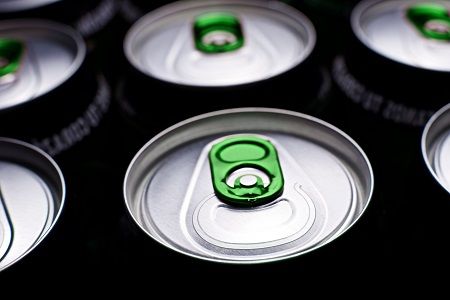Article
Drinking Too Many Energy Drinks Gave One Man Severe Acute Hepatitis
Author(s):
Some people favor coffee while others turn to energy drinks for their daily boost. But with all of that caffeine and sugar, it’s no wonder that the latter often gets a bad rep.

Some people favor coffee while others turn to energy drinks for their daily boost. But with all of that caffeine and sugar, it’s no wonder that the latter often gets a bad rep. Now, we can see just how potentially dangerous overconsumption of these beverage kickers can be with a documented case of acute hepatitis.
Drug-induced liver injury (DILI), caused by exposure to some prescription and over-the-counter drugs, is the cause of about 10% of all cases of acute hepatitis. This is what happened to one 50-year-old man, except instead of prescription drugs, his acute hepatitis was caused by consuming energy drinks — and a lot of them.
Before we dive into how many energy drinks the man drank, keep in mind that research published in the Canadian Journal of Cardiology determined that most healthy adolescents can safely consume one can (250 mL) a day.
The patient, who was otherwise healthy, presented at the ER after two weeks with abdominal pain, nausea, vomiting, malaise, anorexia, generalized jaundice, scleral icterus, and dark urine. He wasn’t on any prescription or over-the-counter medications, as described in The BMJ.
The man told the ER staff that he had been drinking four to five energy drinks a day for the past three weeks.
Lab tests showed that he had transaminitis, echogenic liver, diffuse gallbladder wall thickening, and evidence of chronic hepatitis C infection. A liver biopsy confirmed that the man had severe acute hepatitis with bridging necrosis and marked cholestasis.
Ultimately, physicians concluded that the development of acute hepatitis was probably secondary to the man’s excessive energy drink consumption. The patient reported that he didn’t engage in risky sexual behavior and had not received blood transfusions. He was treated and showed successful improvement.
Many people consume dietary and herbal supplements with the belief that they are “natural” and, therefore, harmless. But in reality, around 23,000 visits to the emergency department every year are due to complications associated with these kinds of supplements. Although a rare occurrence, this case report is another example for clinicians and the public to be aware of how supplements and diet are linked to acute hepatitis diagnoses.
Related Coverage:
Girl Lands in the ER with Hepatitis from Too Much Green Tea





